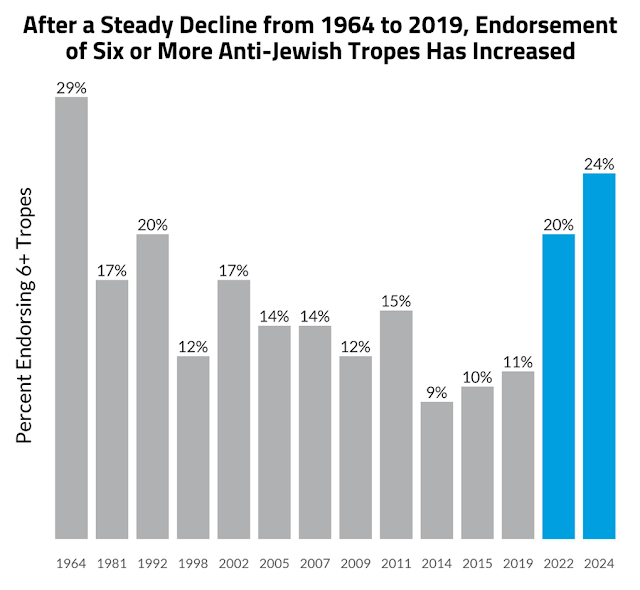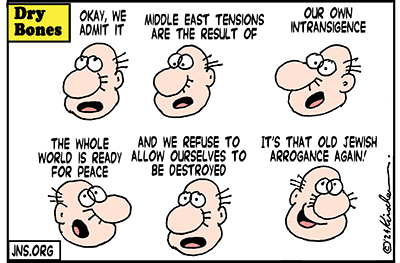‘Reactionary Anti-Imperialism’ as the new Totalitarian Temptation, from Foucault to 7 October
It may seem ridiculous, but it is a serious matter in both senses when some queer activists— apparently with suicidal disregard for what they are endorsing—express their solidarity with Hamas. One can only imagine how long a queer solidarity group would survive in the realm of Sharia [it’s worth noting that anti-Israel Palestinian LGBTQ activists have their headquarters in Tel Aviv and not in Ramallah]. But one doesn’t have to use imagination to see the enthusiasm that the annihilation of Israel, explicitly propagated by Hamas and Iran, generates among millions upon millions of sympathisers of these Palestinian ‘freedom fighters.’ The most prominent advocates of Hamas, Yanis Varoufakis and Judith Butler, waited until Israel reacted (as Hamas had no doubt expected) with counter-strikes, which have since resulted in the deaths of an appalling number of civilians in Gaza, before publicly denouncing the Israeli counter-attack while ignoring the gang of murderers who massacred more than 1,200 people on October 7thjust because they were Jews or associated with Jews [the sort of people that the Nazis had called ‘Jew servants’].The US sees situation in Gaza throughout Hamas' optics
Others didn’t wait that long. Like some of her American counterparts, the Austrian Nicole Schöndorfer (who is very prominent on social media) rushed the very first day after the pogrom to celebrate on Instagram the terrorists who themselves died in the butchering of Jews as ‘martyrs.’ One remembers the atheist Foucault, who denounced religious criticism of the Islamist movement; so why should we be surprised by women who explicitly describe themselves as feminists and yet celebrate as martyrs of a just cause the young men who raped, mutilated, murdered or kidnapped Israeli women and presented them as trophies to the mob? A linguistic collateral damage of today’s misery is that laudable terms like anti-racism, anti-colonialism, and anti-imperialism are so thoroughly discredited by those who misuse them that one has to ask oneself whether new terms will be necessary in order to make linguistic sense of the old ones—to name them correctly to stand up against racism, colonialism, and imperialism.
A few weeks before the Hamas massacre, I was asked what was the easiest way to fuel antisemitism. Today I would have to answer: by massacring as many Jews as possible. Nothing has fuelled hatred of Jews more than the worst attack on Jews since the Shoah, and because the attack was carried out against Jews, the rapists and murderers can only be called ‘resistance fighters’ motivated by a ‘holy Hatred’ against foreign Jewish rule in Palestine. ‘Heilige Hass’ (holy hatred) is, by the way, a motif that literally comes from Julius Streicher’s Nazi magazine Der Stürmer and which has been taken over in anti-colonial discourse. There are forms of ignorance that are entirely culpable. One of these is when Israel haters, who see themselves as left-wing, simply refuse to acknowledge the political foundations of Hamas.
Hamas has never made a secret of the fact that it is not concerned with national equality, social justice or a so-called ‘two-state solution’, but only with the destruction of Israel—which Hamas says represents the most important stage in the battle for final victory between believers and unbelievers. Its foundational charter from 1988 is a compact collection of anti-Semitic stereotypes and a blatant declaration of intent: that an Islamic theocracy will one day be established ‘between the river and the sea.’
When the Israeli army withdrew from Gaza in 2005, Hamas won free elections. Richly supplied with funds from all over the world, it then had the opportunity to establish self-government for the benefit of the residents of Gaza. But that was not its goal; rather, it quickly set about liquidating its Palestinian opponents and imposing a series of fundamentalist laws on the population. Hamas has done everything in its power to turn Gaza into the ‘largest open-air prison in the world,’ while denying that it was they who had created it. In 1970, after Israel had taken over Gaza, 280.000 people lived there. When Israel withdrew completely in 2005 there were about 1.2 million residents, and after fewer than twenty more years there are now 2.2 million: This is what the demographic development looks like when the ‘Zionist aggressor’ engages in ‘genocide’ for more than five decades.
Forty-five years after Foucault abandoned his intellectual and moral standards to support ‘political spirituality,’ the most sensitive youth in the West are forming an alliance with one of the most brutal terrorist representatives of ‘political spirituality.’ There are some new things that the anti-Zionists put forward between Berkeley and Berlin—such as the rigorous rejection of the Enlightenment legacy, which is denounced in self-loathing as a weapon of white supremacy; but the core of their accusation is ancient.
The administration’s policy is gradually but consistently drifting toward hope-based and optimism-based policy, rather than being pragmatic, which raises serious concerns regarding their ability to develop realistic plans for the conflict going forward.
For the United States, the optics of the situation in Gaza supersedes long-term thinking, which would put in place the conditions for improving the lot of the people in Gaza - in other words, by toppling Hamas' rule in Gaza.
As a terrorist organization and a non-state player, Hamas is able to use the most powerful weapon in its arsenal, which is to create a humanitarian crisis in Gaza in order to generate international pressure. This tool of theirs is a force multiplier, which it uses to the utmost effect on world public opinion which, quite justifiably, is shocked by the human suffering there.
In such a situation, a terrorist organization will always be able to extract concessions from the other side. Hamas loses nothing when Gazan civilians die. It can only gain from this. Therefore it has no interest whatsoever in avoiding actions that would exacerbate the humanitarian predicament in Gaza while still maintaining the pretense of fighting for the good of the Palestinian people.
When American humanitarian aid enters Gaza by sea, there is no guarantee Hamas won’t commandeer it. In an extreme scenario, which is by no means unrealistic, Hamas might indeed attack the American warships using the ever-effective excuse - defending the Palestinian people against a Western invasion, rejection of aid from a world power that is aiding the Israeli “occupation” in Gaza or other propaganda-friendly pretexts.
Anyone who has a genuine interest in stabilizing the Gaza situation and preventing Hamas' growth long term, must insist on three conditions: 1. Destruction of Hamas’ military and governmental capabilities. 2. Prevention of any dependency between the civilian population and Hamas, which will exploit its distress to pursue its own goals and 3. De-radicalization of the education system, purging it of incitement, in such a way that it will no longer toxify the next generation of Gazan children, preventing them from becoming tomorrow’s terrorists.
To achieve these goals, and to reduce the number of dead in the long term, Hamas must be defeated at all costs. Failure to get the job done is going to be much more costly to Israel and to the Gazan population in the long term.
The United States, too, was forced to make some highly agonizing decisions during World War II, such as the fateful decision to drop two Atomic bombs on Japan. In the short term, the bombs killed hundreds of thousands, but in the long term, they saved millions of Japanese lives since that country surrendered several days later.
This, according to historical estimates, prevented the unnecessary death of millions more on both sides - American and Japanese. Israel, for its part, is not even seeking to end the war in Gaza in this same painful way - it only seeks legitimacy for the eradication of Hamas’ military and government apparatus and is doing so with the greatest surgical precision possible under the difficult circumstances presented by the battlefield.
To be able to comprehend this simple principle, it is advisable first to begin understanding the Hamas enemy itself - instead of assuming it is ultimately interested in the good of the Gazan population.
















































